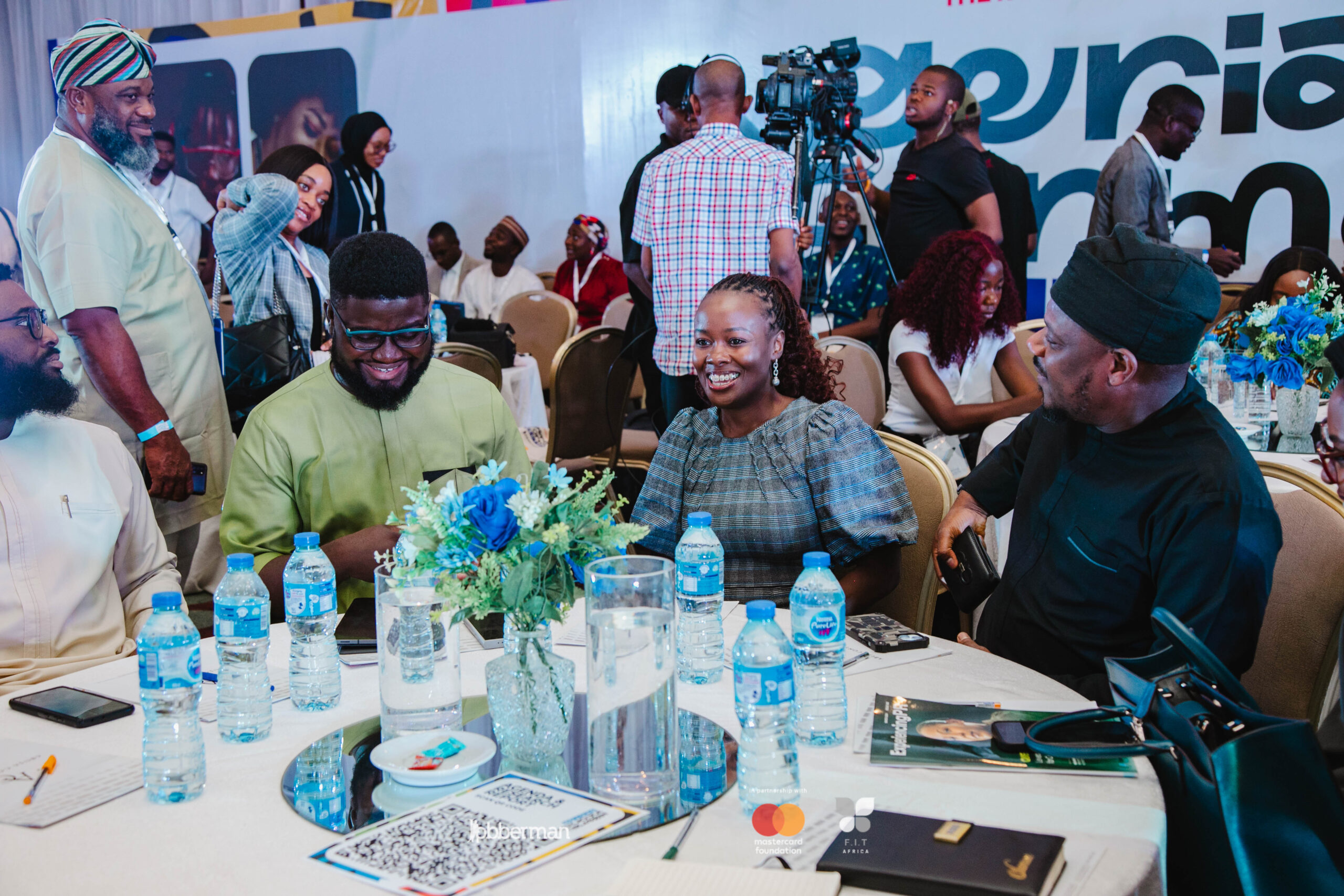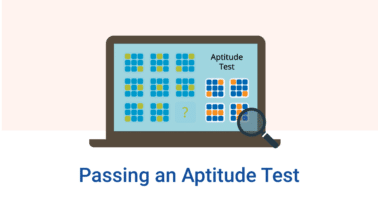On Thursday, the 28th of March, 2024, stakeholders, advocacy enthusiasts and thought-leaders gathered at Abuja Continental Hotel for Jobberman Nigeria’s Informal Sector Roundtable. Themed “A Pathway to Sustainable Economic Transitions for Young People, the discussions delved into the critical issues facing the economy, particularly in relation to the informal sector.
The roundtable, the sixth of its kind by Jobberman Nigeria in partnership with the Mastercard Foundation built on previous dialogues spanning Agriculture, Creative and Digital sectors. Past editions Gender Roundtable and How Young People Survive without Jobs, have also delved into the intricate dynamics of these topics, addressing their impact on employment and economic empowerment.
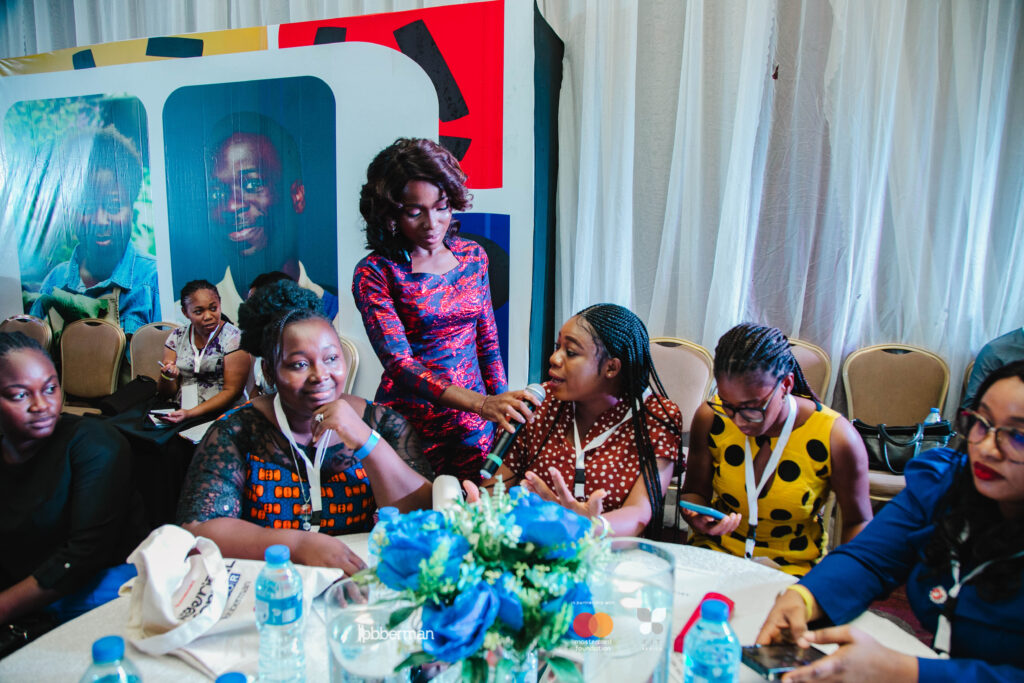
At the event, discussions from the panel session and breakout rooms explored insights from our research on the informal sector, a sector that holds immense potential for driving sustainable economic transitions, especially for our young people. The Informal Sector constitutes approximately 90% of newly created jobs, 60% of urban employment, and contributes to 50% of Nigeria’s GDP. In Lagos State, the economic hub of the nation, around 75% of all employment is informal (IMF, 2021).
Highlights of the roundtable
In his keynote speech, Tola Adekunle Johnson, Senior Special Assistant to the President on Job Creation and Msmes stressed that investing in informal businesses has a multiplier effect. A single project within the informal sector can create countless jobs and boost local economies. He further reiterated the commitment of the present administration to support job creation and sustainable development within the sector.
Table of Contents
The Panel Session:
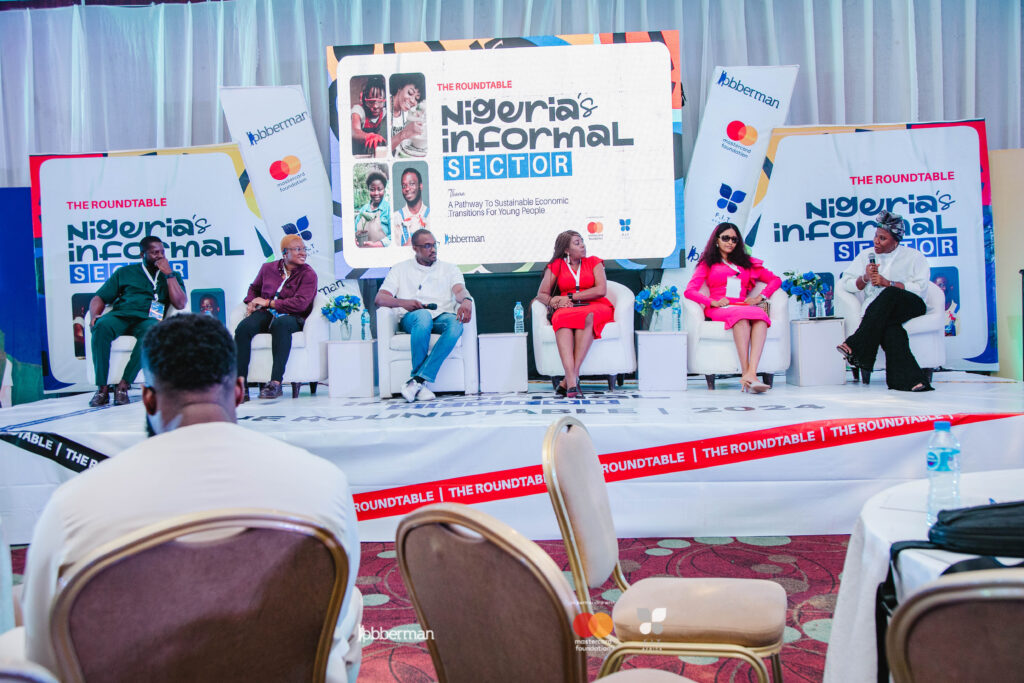
- Taiwo Ajetunmobi; Senior SA to the President on PEBEC & Investment (OVP) and Chief Operating Officer, PEBEC Secretariat.
- Mary Omoyeme Victor Magaji (Barr); Founder, MAVIC Enable Foundation.
- Ibukun Igbinosa; Nigeria People Lead (One Acre Fund/New Country Expansion)
- Eyimisan Abusomwan; CEO & Founder of Runner.
- Moderator: Sherifat Balogun, Director, Strategy, Funding and Stakeholder Management, LSETF
Some key points from the panel discussion
- We can further improve the quality of workers within the private sector by
- Defining what “Decent earning” means within the context of its ability to help them meet their needs.
- Create a growth structure that promises a profitable future.
- Prioritising added perks and benefits to inspire quality service and delivery.
- The informal sector has the resources our country needs to increase its GDP. (Ibukun Igbinosa).
- That you’re in the informal sector does not mean you’re not trained; it just means you’re trained differently.
- To improve the informal sector, we must set and fix standards without which impact cannot be measured. (Taiwo Ajetunmobi)
- The informal sector is not non-regulated; it’s simply not regulated by the government. (Busayo Onome Oyetunji)
- In the future of work, work will be anything that offers value. (Eyimisan Abusomwan)
- The formalisation of the informal sector will happen quicker if the drivers can show and prove beyond reasonable doubt that the players within will benefit from the process (Busayo Onome).
Breakout Session Takeaway
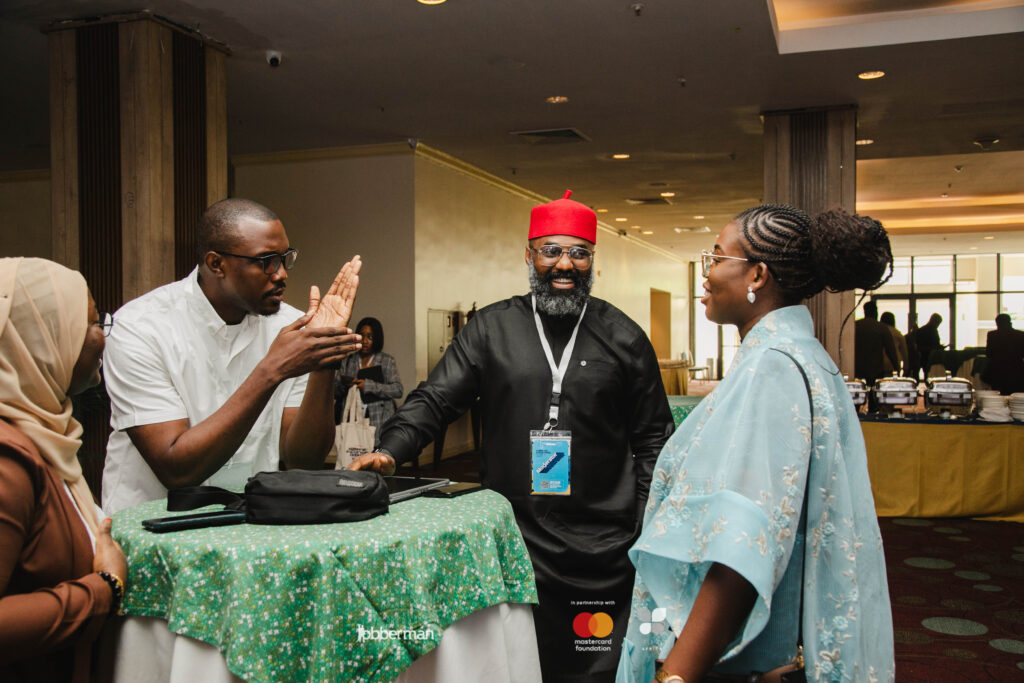
During the breakout sessions, the informal sector was divided into the digital, creative and agricultural economies.
The creative breakout session, moderated by Nollywood actor, Ifeanyi Kalu, discussed the challenges within the creative part of the informal sector, particularly the film industry.
Some of the challenges include a lack of inclusivity, nepotism and the need for visibility and recognition.
The participants of this breakout room concluded that the solution to these challenges would be making incentives available for members within organisations, providing people with disabilities the opportunity to showcase their creativity and Establishing accessible platforms to acknowledge and engage with creative talents.
The digital sector breakout room discussed how to digitalize the informal sector. The main takeaway was to build digital solutions for beneficiaries in accordance with their level and structures around who they are and what they know. Another conclusion the participants arrived at was to be original in how data is gathered, knowing that it is important to have a central data point for everything.
The agricultural sector breakout room touched on challenges and innovation in agriculture. The moderator led the participants in a stimulating discourse on technology adoption, becoming agriculturally smart ie., agricultural smart practices, capacity development, data and statistics. They spoke about inclusion and steps to take to ensure adoption
The Informal sector roundtable was a success and the points raised are too many to encapsulate in this single blog.
You can watch a replay of the first half of the event here.
You can also find the replay of the second part here.
Key stakeholders including Hilda Kragha, CEO, The African Talent Company (Jobberman Nigeria’s parent company) Ore Boboye, CEO Jobberman Nigeria, Henry Adebisi, Head of Finance, Jobberman Nigeria, Gabriel Gab-Umoden, CMO, The African Talent Company, Shuhdah Ahmed, SA to the President on Project Support (OVP), Tola Adekunle Johnson, Senior Special Assistant to the President on Job Creation and Msmes, Ahmed Alaga, Head of Partnerships, The African Talent Company/Program Manager, Partnerships, Jobberman Nigeria, and Samantha Ifezulike, Head, People & Culture, Jobberman Nigeria were also present at the roundtable.

